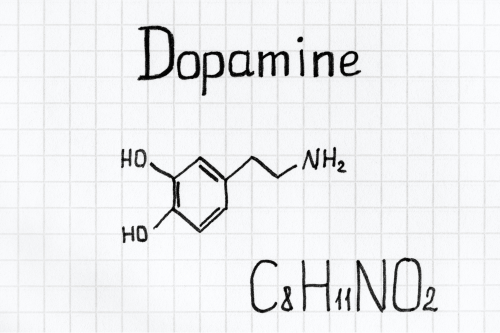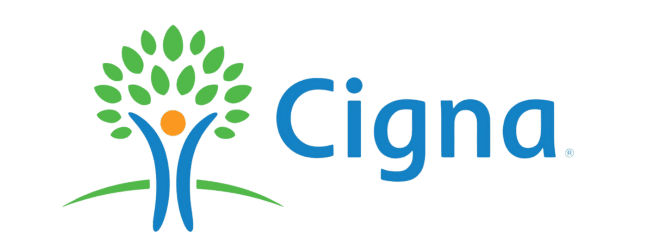How Long to Rewire Brain from Addiction?
The brain from addiction can heal, but it requires time, support, and consistency. Addiction changes the physical structure and chemical balance of the brain, particularly in regions like the prefrontal cortex, nucleus accumbens, and basal ganglia. Reversing these changes is a gradual process that varies by individual.
Understanding Brain Rewiring in Addiction Recovery
Addiction alters the brain’s reward circuits and distorts neurotransmitter dopamine production. Addictive substances hijack the brain’s natural dopamine levels, reinforcing addictive behavior for temporary relief.
The brain rewiring process refers to the formation of new neural connections that support healthy coping mechanisms and natural rewards instead of addictive drugs.
The Science of Brain Rewiring
The human brain has an incredible ability to adapt through a process called neuroplasticity. This refers to the brain’s capacity to reorganize itself by forming new neural pathways and eliminating those tied to addictive habits.
The recovery process requires repeated exposure to positive activities, healthy pathways, and supportive environments that retrain the brain circuits over time.
Role of Neuroplasticity
Neuroplasticity plays a crucial role in overcoming substance use disorders. As individuals replace addictive behaviors with healthier behaviors, the brain begins to rewire itself to favor these changes.
This transformation is not immediate. It may take weeks or even months of abstinence for noticeable improvements in mood, cognitive function, and emotional stability.
Phases of Recovery
Detoxification
The initial stage of recovery is detox, which addresses physical dependence and withdrawal symptoms. The Acute withdrawal phase usually lasts several days to a week under medical supervision.
Detox prepares the body and brain for the deeper work of rewiring and healing.
Early Recovery Stage
In this phase, the brain chemistry begins to stabilize. Cognitive-behavioral therapy and Medication-assisted treatment may be introduced to manage cravings and reshape negative thought patterns.
This period often includes strong cravings, mood swings, and emotional ups and downs.
Long-term Recovery
This stage can last several months or years. The brain gradually returns to a normal level of dopamine production. Healthy patterns, consistent routines, and ongoing effort become central to maintaining sobriety.
At Tennessee Behavioral Health, we provide partial hospitalization programs and long-term recovery efforts designed to support this phase.
Factors Influencing the Duration of Rewiring
Substance Type and Its Effects
The type of substance used affects how long the brain from addiction takes to rewire. Alcohol addiction, opioids, and methamphetamine may cause more significant brain damage and take longer to heal.
Different substances influence different brain regions and levels of dopamine production.
Length and Severity of Addiction
The severity of addiction plays a key role in the timeline for brain recovery. Long-term use of large amounts creates deeper neural imprints and more ingrained addictive behaviors.
This often extends the rewiring in addiction recovery.
Individual Brain Chemistry Differences
Each person’s brain chemistry, chemical makeup, and genetic factors influence recovery. Some may respond faster to healthy habits and treatment programs due to natural brain healing speed.
Mental health disorders can also complicate the recovery journey.
Treatment and Support Level
Access to evidence-based treatments, professional treatment, and addiction specialists significantly improves outcomes. Individual factors like family support, strong networks, and environmental factors impact success.
Comprehensive approaches that combine behavioral therapy, medical treatment, and holistic approaches support successful brain rewiring.
Effective Strategies for Supporting Brain-Rewiring
Abstinence as a Foundation
Months of abstinence from the addictive substance are required for the brain to begin resetting its dopamine levels. Without abstinence, the cycle of addiction continues and the brain cannot heal.
This is the baseline for all addiction recovery efforts.
Cognitive Behavioral Therapy (CBT)
CBT helps break negative thought patterns and develop healthier coping mechanisms. It teaches individuals how to respond to stress levels and triggers without turning to substances.
This method is a core part of our treatment options at Tennessee Behavioral Health.
Medication-Assisted Treatments
MAT stabilizes brain chemicals and reduces intense cravings. Medications help balance chemical messengers and restore levels of dopamine during recovery.
Combined with regular therapy sessions, MAT supports long-term sobriety.
Lifestyle Changes: Nutrition and Exercise
A balanced diet rich in vitamins, minerals, and protein supports brain cell regeneration and brain function. Regular exercise improves mood, boosts natural dopamine production, and enhances physical health.
A healthy diet and physical activity are part of the holistic recovery programs we offer.
Mindfulness and Meditation Practices
Mindfulness strengthens the prefrontal cortex, the brain’s decision-making center. It also reduces overactivation in the emotional centers affected by addiction.
Practicing mindfulness helps shift the brain from stress responses to healthier behaviors.
The Importance of Comprehensive Treatment Plans
Personalized Therapy Approaches
Personalized treatment plans consider the type of addiction, personal history, and psychological dependence. These plans may include motivational interviewing, Family therapy, and contingency management.
Tennessee Behavioral Health tailors every plan to match individual needs.
Building a Supportive Environment
Recovery thrives in an environment for individuals that promotes healing. A strong network of family, friends, and peers, like 12-step programs or Alcoholics Anonymous, increases the likelihood of relapse prevention.
A supportive lifestyle encourages healthy activities and social connections that reinforce new neural paths.
Measuring Progress in Brain Rewiring
Behavioral Assessments
Clinicians track behavioral changes, emotional regulation, and daily routines to assess brain improvement. Addiction treatment centers use tools to evaluate these behavioral shifts during recovery.
This provides insight into the success of the rewiring process.
Neurological Evaluations
Advanced imaging can track brain activity, gray matter and white matter changes, and overall brain health. These metrics reveal progress in brain recovery over the stages of recovery.
At Tennessee Behavioral Health, we collaborate with medical professionals to monitor neurological recovery when needed.
Common Challenges in Rewiring the Brain
Managing Setbacks and Relapses
The risk of relapse is high in early recovery. Addictive behavior can return in response to stress or emotional triggers. Recognizing these as part of the ongoing process is key to maintaining long-term success.
Relapse is not failure—it’s a signal that deeper support or adjustments are needed.
Dealing with Emotional and Mental Health Issues
Unresolved mental health disorders such as anxiety or depression interfere with the brain rewiring process. Without treating both substance abuse and underlying issues, long-term recovery is difficult.
Dual-diagnosis care at Tennessee Behavioral Health supports both the mind and brain.
Final Thoughts
Rewiring the brain from addiction is a lifelong journey. The timeline for brain recovery depends on many individual factors—from the type of substance used to treatment support and lifestyle choices.
At Tennessee Behavioral Health, our goal is to guide each person through this transformative journey with science-backed strategies and compassionate care. With consistent effort, healthy habits, and strong support, the remarkable ability of the brain to heal becomes reality.
If you or a loved one is ready to break the cycle of addiction and support the brain’s natural healing process, contact Tennessee Behavioral Health today. Let’s start your successful recovery—one neural connection at a time.

FAQ's
Yes, rewiring the brain strengthens self-control and decision-making, reducing vulnerability to future addictive behaviors.
While you can’t rush healing, activities like regular sleep, a healthy diet, and therapy can support more efficient brain recovery.
Yes, younger brains tend to recover faster due to higher neuroplasticity, but older adults can still achieve successful rewiring.
Certain apps may support cognitive improvement, but they work best when combined with evidence-based treatments and therapy.















